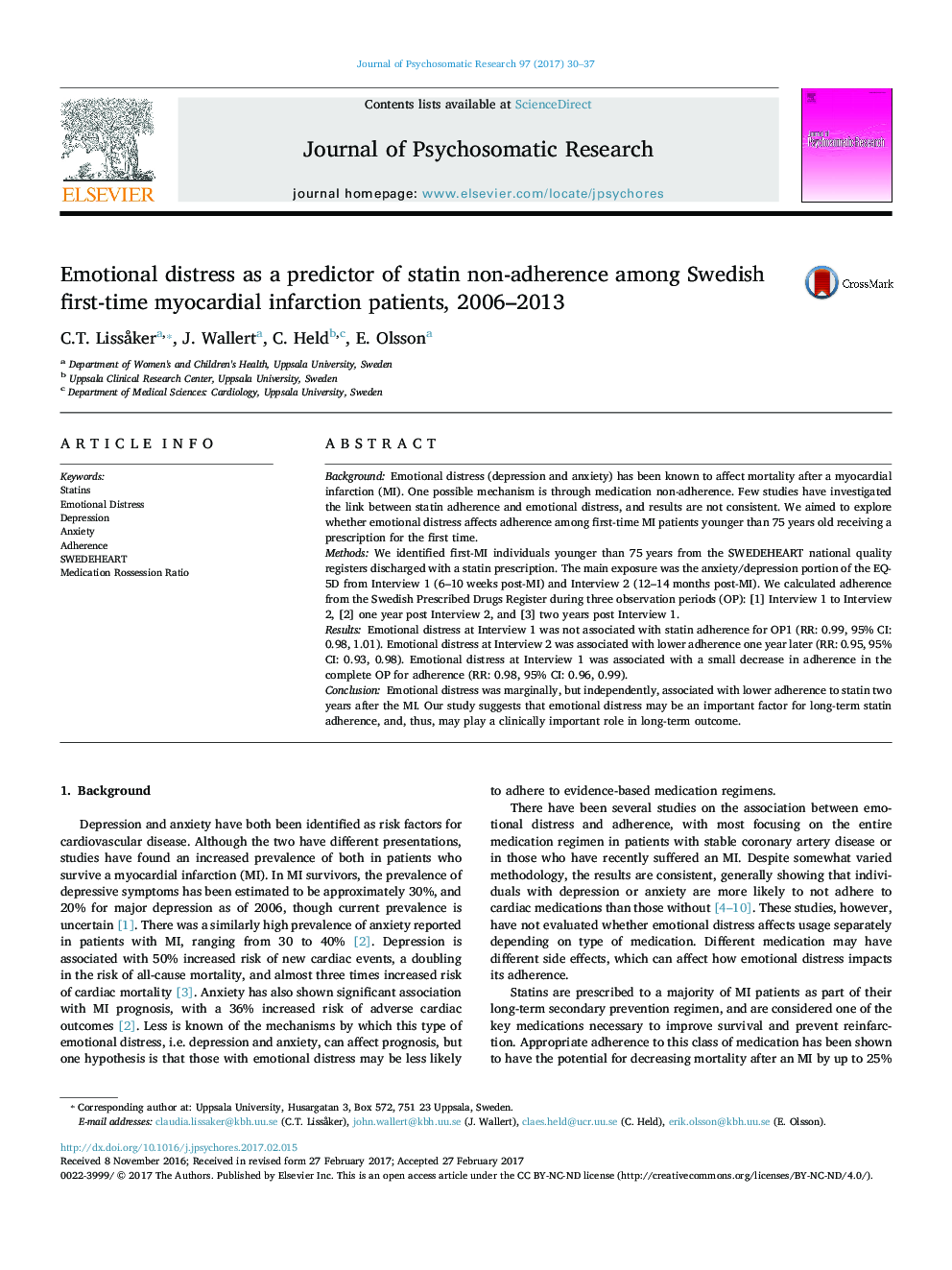| Article ID | Journal | Published Year | Pages | File Type |
|---|---|---|---|---|
| 5045980 | Journal of Psychosomatic Research | 2017 | 8 Pages |
â¢Emotional distress is known to affect prognosis after a myocardial infarction (MI).â¢May be due to lower adherence to cardiovascular medications, such as statins, among individuals with emotional distress.â¢Emotional distress 6-10 weeks after the MI was not associated with lower adherence to statins one year later.â¢â¢Emotional distress at 6-10 weeks and 12-14 months after the MI were associated with decreased long-term statin adherence.
BackgroundEmotional distress (depression and anxiety) has been known to affect mortality after a myocardial infarction (MI). One possible mechanism is through medication non-adherence. Few studies have investigated the link between statin adherence and emotional distress, and results are not consistent. We aimed to explore whether emotional distress affects adherence among first-time MI patients younger than 75Â years old receiving a prescription for the first time.MethodsWe identified first-MI individuals younger than 75Â years from the SWEDEHEART national quality registers discharged with a statin prescription. The main exposure was the anxiety/depression portion of the EQ-5D from Interview 1 (6-10Â weeks post-MI) and Interview 2 (12-14Â months post-MI). We calculated adherence from the Swedish Prescribed Drugs Register during three observation periods (OP): [1] Interview 1 to Interview 2, [2] one year post Interview 2, and [3] two years post Interview 1.ResultsEmotional distress at Interview 1 was not associated with statin adherence for OP1 (RR: 0.99, 95% CI: 0.98, 1.01). Emotional distress at Interview 2 was associated with lower adherence one year later (RR: 0.95, 95% CI: 0.93, 0.98). Emotional distress at Interview 1 was associated with a small decrease in adherence in the complete OP for adherence (RR: 0.98, 95% CI: 0.96, 0.99).ConclusionEmotional distress was marginally, but independently, associated with lower adherence to statin two years after the MI. Our study suggests that emotional distress may be an important factor for long-term statin adherence, and, thus, may play a clinically important role in long-term outcome.
